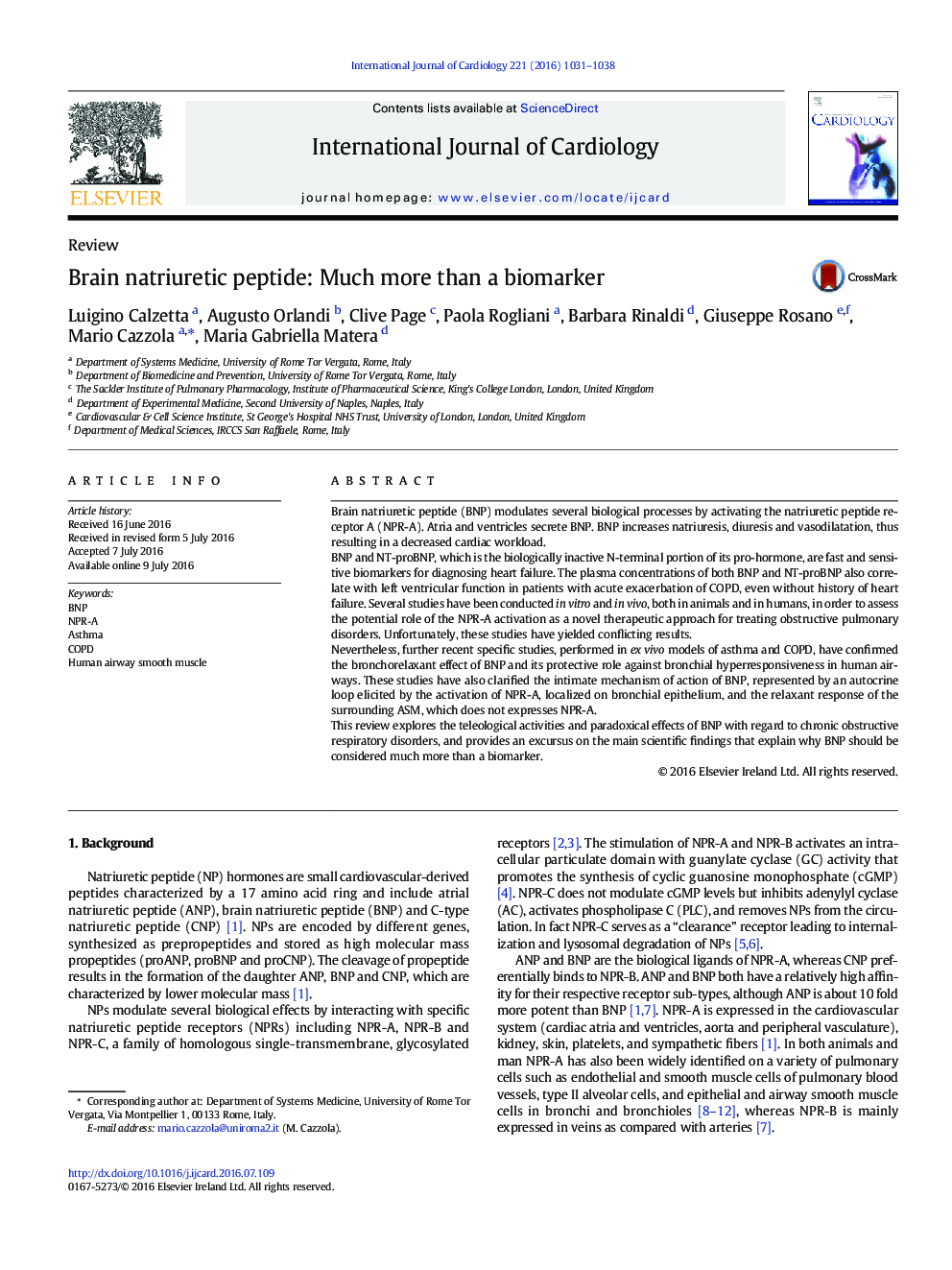| Article ID | Journal | Published Year | Pages | File Type |
|---|---|---|---|---|
| 5962844 | International Journal of Cardiology | 2016 | 8 Pages |
â¢BNP and NT-proBNP are fast and sensitive biomarkers for diagnosing heart failure.â¢BNP testing in COPD patients increases the detection of chronic heart failure by about 20%.â¢BNP and NT-proBNP levels may be elevated in patients with COPD without a history of heart failure.â¢Ex vivo studies documented a BNP bronchorelaxant and bronchoprotective effect in human airways.â¢BNP induces a physiologic autocrine loop at the level of bronchial wall and is a potential drug for COPD.
Brain natriuretic peptide (BNP) modulates several biological processes by activating the natriuretic peptide receptor A (NPR-A). Atria and ventricles secrete BNP. BNP increases natriuresis, diuresis and vasodilatation, thus resulting in a decreased cardiac workload.BNP and NT-proBNP, which is the biologically inactive N-terminal portion of its pro-hormone, are fast and sensitive biomarkers for diagnosing heart failure. The plasma concentrations of both BNP and NT-proBNP also correlate with left ventricular function in patients with acute exacerbation of COPD, even without history of heart failure. Several studies have been conducted in vitro and in vivo, both in animals and in humans, in order to assess the potential role of the NPR-A activation as a novel therapeutic approach for treating obstructive pulmonary disorders. Unfortunately, these studies have yielded conflicting results.Nevertheless, further recent specific studies, performed in ex vivo models of asthma and COPD, have confirmed the bronchorelaxant effect of BNP and its protective role against bronchial hyperresponsiveness in human airways. These studies have also clarified the intimate mechanism of action of BNP, represented by an autocrine loop elicited by the activation of NPR-A, localized on bronchial epithelium, and the relaxant response of the surrounding ASM, which does not expresses NPR-A.This review explores the teleological activities and paradoxical effects of BNP with regard to chronic obstructive respiratory disorders, and provides an excursus on the main scientific findings that explain why BNP should be considered much more than a biomarker.
